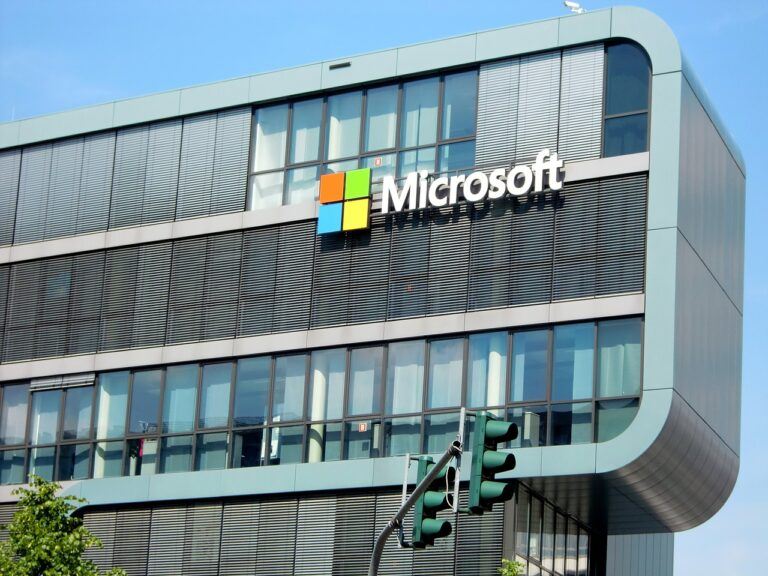Microsoft is currently working on an open-source project which involves developing decentralized infrastructure on the Bitcoin (BTC) blockchain.
Microsoft’s latest project, called Ion, will focus on developing protocols which allow different networks to communicate with each other.
Facilitating Communication Between Separate Networks
For instance, if you use your LinkedIn credentials to log into an Uber Conference meeting, then a communications protocol at the software layer would send your profile data (from LinkedIn) to servers used by Uber Conference’s program. The profile data received would then be used to verify users’ credentials.
Microsoft’s Ion platform is being developed to handle a similar verification process, however it will process the data between separate networks by using decentralized identifiers. Ion network users will be able verify, or prove, that they own their data – as they will also own the keys associated with their data.
In statements shared with Coindesk, Christopher Allen, an early crypto adopter and co-founder of the World Wide Web Consortium (W3C) Working Group for Decentralized Identity (DID) Solutions, said:
A lot of enterprise infrastructures use Microsoft products. So if they integrate this into any of their infrastructure products, they’ll have access to DID.
Microsoft Working On Key Signing And Validation Solution
Yorke Rhodes, a Program Manager at Microsoft’s blockchain-focused engineering team, confirmed that the tech giant had been working on a key signing and validation solution for the past year. Rhodes also mentioned that Microsoft’s software is compatible with public chains including Bitcoin and Ethereum.
According to Rhodes, Microsoft’s Ion platform has greater throughput than the blockchain network on which it is being developed. He also noted:
There are systems that we have at Microsoft that give you permissions in an enterprise context, a product called Active Directory, that we think [may] be able to recognize these DIDs as well.
As a founding member of the Decentralized Identity Foundation, Microsoft has been building various infrastructure-related products and services such as its Azure platform.
According to sources familiar with the matter, the Ion network will be moved from Bitcoin’s testnet to its mainnet at some point during this year.
Facebook’s Management Not Interested In Decentralized Identity Solutions?
One of the main benefits of using DID, or a decentralized identity and data management system, would be that giant social networks such as Facebook or Twitter would not have complete control over users’ profile images and other personal information. The centralized network owners would be able to terminate accounts, but they would not be able to prevent users from keeping their personal data.
Interestingly, Rouven Heck, the Head of the DID project at ConsenSys and W3C member, revealed that Facebook’s management appears to be avoiding discussions related to decentralized identity solutions.
Rhodes said:
Facebook is the complete antithesis of consumer privacy. Their business model is based on the fact they can monetize data about you.
Meanwhile, Rhodes thinks open-source projects like Ion are inline with Microsoft’s current business strategy and that the tech giant also believes in the “philosophy of consumer ownership and consumer centricity.”









